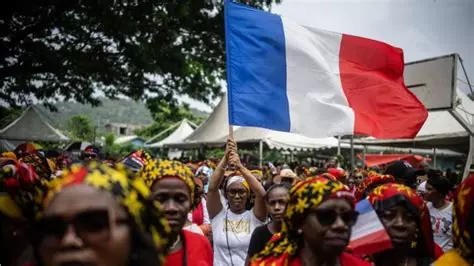In a dramatic escalation of tensions with its former colony, France has expelled two Malian diplomats and frozen its counter-terrorism cooperation with Bamako. Behind the official rhetoric lies a deeper strategic divorce, as Mali accelerates its pivot from the West to Russia.
The arrest of a French diplomat in Bamako, labelled “unjustified” by the Quai d’Orsay, has prompted Paris to expel two Malian diplomats and suspend military cooperation with Mali. The move, announced late Friday, is less a reaction to a single incident than a symptom of a broader collapse in Franco-Malian relations. It marks the latest fracture in the increasingly hostile divorce between the Elysée and the Malian junta, which has openly embraced Moscow’s protection and turned its back on its former colonial patron.
An Arrest That Unmasked a Strategic Realignment
The case began discreetly last month: a French citizen, reportedly operating under diplomatic cover, was arrested by Malian authorities. Officially accused of espionage, the individual has become the epicentre of a diplomatic standoff. France insists he was protected by diplomatic immunity. Bamako sees things differently—arguing that foreign agents are embedded in efforts to “destabilise” the country.
There is something strikingly calculated in Mali’s timing. The junta, having survived two coups and consolidated power under Colonel Assimi Goïta, now feels emboldened enough to pick symbolic fights with France. Declaring persona non grata five French embassy employees was not merely a tit-for-tat gesture; it was a declaration of independence—military, diplomatic, and ideological.
France’s Expulsion of Malian Diplomats: A Symptom, Not a Solution
The decision to expel two Malian diplomats—given until Saturday to leave French territory—was not unexpected. What is more revealing is France’s simultaneous decision to freeze its counter-terrorism cooperation with Bamako, once the linchpin of Operation Barkhane. The implication is clear: Paris no longer sees Mali as a credible partner in the fight against jihadism. In truth, that partnership has been eroding for years.
The focus keyphrase France expels Malian diplomats now symbolises more than diplomatic friction. It reflects France’s waning influence in a region it once dominated, and the corresponding rise of Russian military assistance, often under the ambiguous flag of the Wagner Group.
From Strategic Ally to Adversary: Mali’s Russian Turn
The Goïta junta, facing internal dissent and rising jihadist violence, has found in Russia not just a new ally but a convenient narrative. Where France speaks of rules-based order and international law, Moscow offers weapons, advisors, and rhetorical support for “sovereignty.” This shift has not only altered the power balance in the Sahel—it has exposed the incoherence of Western strategy in the region.
France’s appeals to international norms, such as diplomatic immunity, ring hollow in Bamako, where the Kremlin’s vision of multipolar defiance resonates more strongly. If France believed that its presence in Mali was a guarantee of stability, recent events have disproved it.
The Broader Geopolitical Landscape: A Post-Western Sahel?
With the arrest of the French diplomat and the reciprocal expulsions, one thing becomes increasingly clear: the era of Western primacy in Mali is over. France expelling Malian diplomats is not an isolated diplomatic gesture—it is part of a strategic disengagement, forced as much by local resentment as by Paris’s diminishing appetite for endless counter-insurgency operations.
Meanwhile, the junta continues to claim it is a victim of foreign plots, citing the recent arrests of dozens of soldiers allegedly linked to coup attempts. Whether these are real threats or manufactured purges, they serve a purpose: consolidating internal power while vilifying external interference.
It is not lost on observers that this narrative closely mirrors Russian disinformation strategies elsewhere. The playbook is familiar: frame the West as saboteurs, depict Moscow as a defender of sovereignty, and rule indefinitely under the guise of emergency governance.
A Clean Break, Not a Tactical Pause
This latest confrontation is not a diplomatic bump, it is a geopolitical rupture. France’s expulsion of Malian diplomats is the punctuation mark on years of fraying trust and divergent agendas. Mali has chosen its path, and it leads away from Paris. The question now is not whether France can salvage the relationship, it is whether it even wants to.



